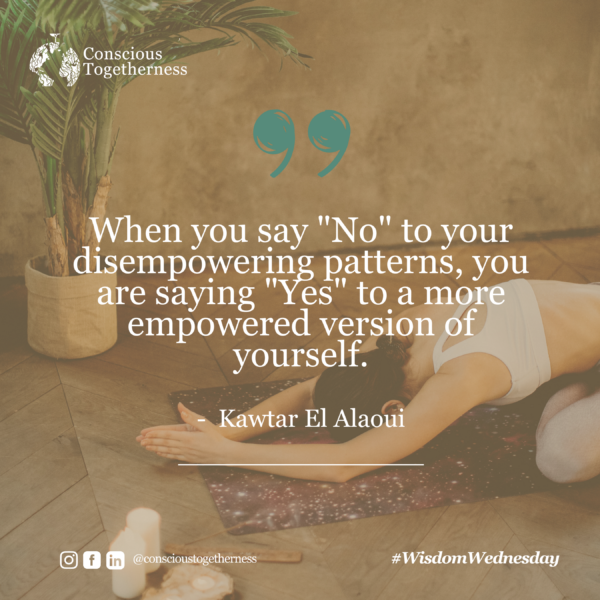Think about how you treat yourself in general. If you, like most people, tend to criticize yourself when things go “wrong”, you could benefit from a bit more self-compassion in your life.
Being forgiving and nurturing to one’s self appear to offer their own set of advantages.
Self-compassion provides a multitude of benefits; it can pave the way for improved health, relationships, and overall happiness and lower down levels of anxiety and sadness.
Moreover, self-compassionate people understand when they are in pain and treat themselves with kindness, decreasing their stress levels.
But, what principles is self-compassion based on and how can we practice it in real life?
In this article, let us explore the elements of self-compassion and how to use these principles to imbibe it in our daily lives.
The Three Facets of Self-Compassion

Kindness versus Judgment
Instead of ignoring our feelings and castigating ourselves with self-criticism, being self-compassionate means being warm and accepting towards one’s suffering, failure and perceived inadequacy.
Self-compassionate people understand that having flaws, failure, and having problems in life is inevitable. Thus, they are gentle with themselves when presented with painful situations rather than becoming upset when life falls short of expectations.
People are not always able to be or obtain what they desire. When this truth is denied or battled against, stress, irritation, and self-criticism become more prevalent. Emotional serenity is gained when such truth is embraced with empathy and love.
Shared Commonality versus Isolation
Frustration at not getting what we desire is frequently accompanied by an unreasonable but pervasive sense of isolation as if we were the only one suffering or making errors.
Learn how our coaching and mentoring enhances your leadership and career satisfaction.
Humans, on the other hand, all suffer. Being “human” implies that one is mortal, has vulnerabilities, and flaws by definition. As a result, self-compassion entails acknowledging that suffering and self-inadequacy are a part of a shared commonality in human experience–it is something we all go through rather than something exclusive to you alone.
Mindfulness versus Overidentification
Equilibrium is everything.
Self-compassion also necessitates a balanced approach to negative emotions, ensuring that sentiments are not suppressed or exaggerated. This balanced position results from relating personal experiences to those of others suffering, allowing us to put our situation into context.
Moreover, it also comes from a willingness to openly observe our unpleasant thoughts and feelings so that they can be retained in attentive awareness.
Mindfulness is the openness and acceptance in which one observes thoughts and feelings without trying to ignore or reject them. We can’t be compassionate and disregard our grief at the same time.
At the same time, mindfulness necessitates that we do not get too caught up with our thoughts and feelings. Because oversensitivity may cloud our judgment, allowing negative responses to dominate over us instead of sound reasoning.
How to Practice Self-Compassion Daily
Nourish your body. Nourishing our body means eating a healthy diet and allowing ourselves to relax and unwind, like having a massage or going for a stroll. Self-compassion is enhanced by doing things that we can do to improve our physical well-being.
Write to yourself. Let’s take a deep breath; consider a time when you were in great distress. Write everything that you want to say to yourself, describing the circumstances without having to blame yourself.
According to Good Therapy, therapeutic journaling enables us to express ourselves without prejudice and analyze issues or concerns freely. It is a great way to unload emotional tension, worry, anxiety, and prevent depression.
Be your #1 fan. The famous quote, “Your greatest enemy is yourself.” speaks so much of our daily struggles.
No one in this world is capable of letting us down or demotivating us but ourselves.
Do this: Talk to yourself as if you are comforting your best friend in times of difficult or stressful situations. Breaking the habit of being self-critical is honestly quite a feat, which leads us to the next tip.
Be mindful. To break the habit of being overly self-critical, we have to be conscious of how our minds operate. Are you starting to say debilitating things about yourself? Do you quickly say negative things to yourself whenever you make mistakes or fail at tasks?
Be vigilant whenever these negative thoughts surface. Practicing meditation also helps in nurturing and accepting ourselves while we are in pain.
Final Thoughts
The only person who can help us reach milestones is ourselves. We are our very own ally. Thus, there are only three elements to unlock compassion towards ourselves: kindness, acceptance that we all share the same struggles, and mindfulness.
Again, self-compassion is never selfish at all. If we keep depositing the three ingredients in our tank, we would be able to fulfill our roles as impact-makers–that is how vital self-compassion is for us to show compassion towards others.
Thus, my next question is: how does being self-compassionate affect our relationships towards others, especially in leadership.
I am inviting you again to stay tuned for the last part of this blog series!
PS: I have a waiting list at the moment. Make sure to book your call to begin your journey as soon as possible.
Subscribe to our newsletter for tools and invitations that guide your purpose driven life & leadership.

